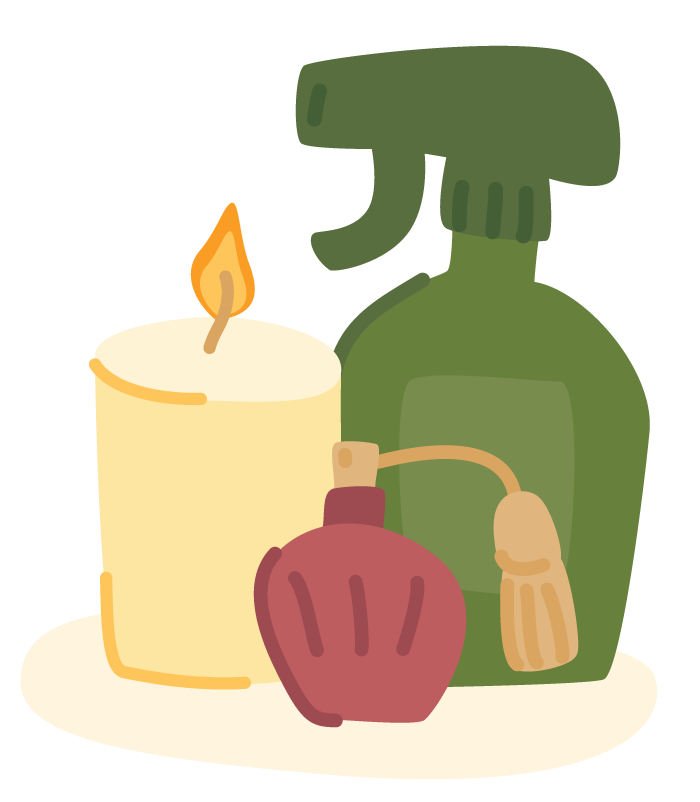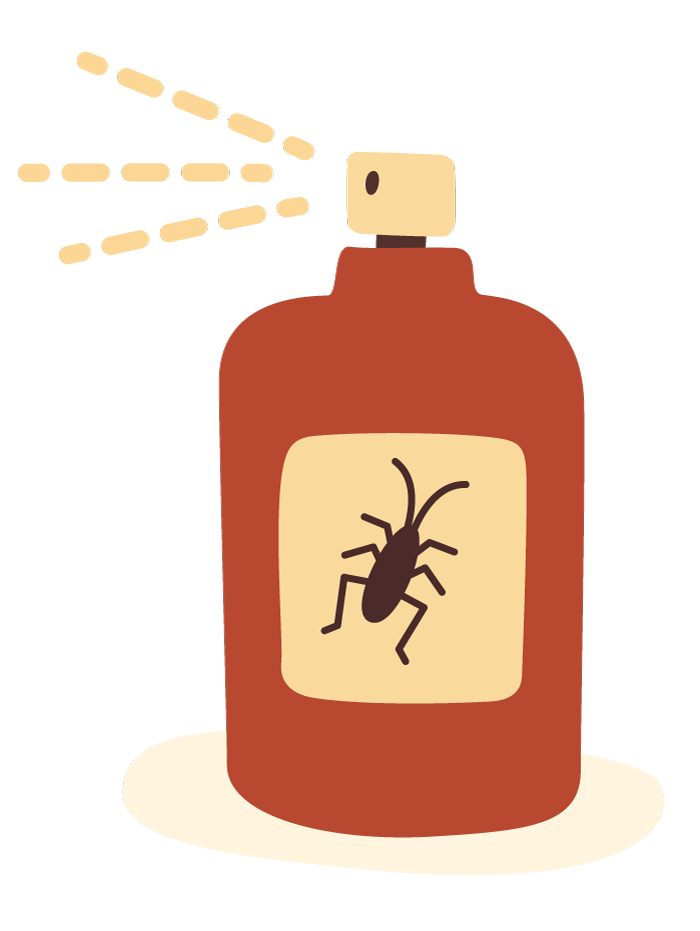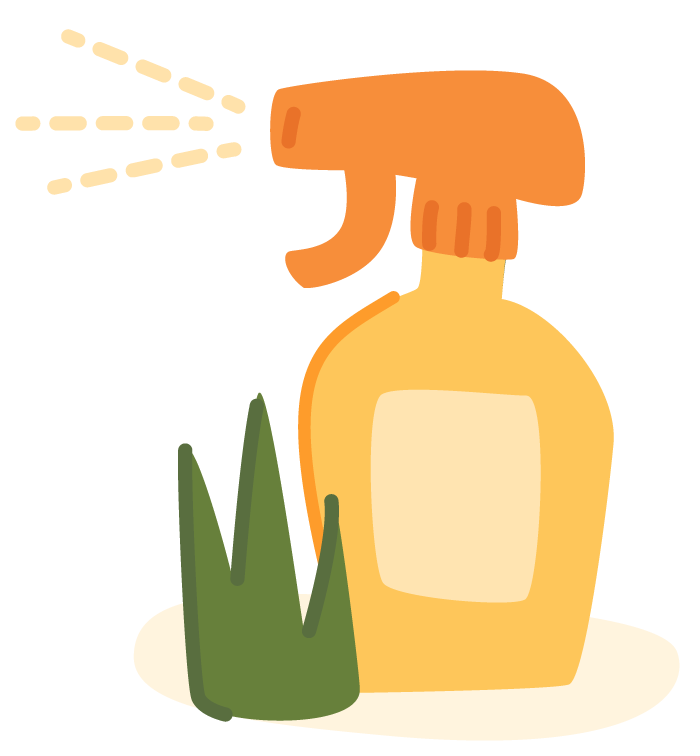Household dangers for your pet

by Dr Edward Bassingthwaighte
There are a LOT of chemicals that fill our supermarket and hardware store shelves. Chemicals are widely used because everyone thinks they are safe. Unfortunately, many of these ‘everyday’ products may be toxic to pets and may cause harm over the short term, especially with chronic exposure.
Your pets have a larger surface area to volume than you do- and this means that they absorb and concentrate higher levels of toxins in their body than you do over time (with the same exposure levels). The smaller your pet, the worse this problem becomes.
Your pets also generally don't wear clothes, and they groom themselves with their tongues - this means that any chemicals that are on the floors or fabrics of your home, or your lawn/gardens end up on your pet's coat; then as they groom themselves, your pet will be eating the toxins, taking them straight into the digestive system.
Another question to consider is this: We all live in a toxic world - there is low-level contamination of the air we breathe, the water we drink, and all the foods we and our pets eat with literally hundreds of industrial chemicals at low levels. How much healthier might you feel if you reduce the toxic load in your home? How will your pets feel if you reduce their toxic load?
Let’s talk about the different types of chemicals that may be toxic to pets; that I STRONGLY recommend that you get out of your home, out of your life, and far, far away from your pets. So, what are the most common household dangers to pets that you need to avoid?

Artificial Fragrances
You may be surprised to learn that many artificial fragrances can be toxic to pets. These are everywhere in household cleaners, laundry detergents, air fresheners, deodorants, scented candles, incense, perfumes and many other products. The vast majority of these kinds of products are laced with artificial fragrances. These fragrances are derived from crude oil (extremely poisonous stuff), and are hormone dysregulation, carcinogens, and irritants - and have been linked to causing cancer, birth defects, central nervous system disorders, diabetes, obesity, and chronic ill-health.
If you want to remove this extremely toxic influence from your pet’s life (and your home) you’ll need to become an avid reader of labels. Hint: you might need a magnifying glass, as they often make the ingredients list so small that even with reading glasses, you won't be able to see what they are saying.
Look out for the ingredients: ‘perfume’, ‘fragrance’, or ‘nature identical fragrance’. First up, have a look at all the products in your home. You may have to throw a lot in the bin, including ridiculously expensive perfumes in many cases. Have a really good look at your pet shampoo! Most of them reek of artificials!

Pesticides
Ants, cockroaches, biting insects… They can be a real pain, and what we have been taught to do to get these out of our homes is to go and pick up a spray can of insecticide. Nuke them! Don’t they die so quickly when you spray them? That tells you how toxic these insecticides are, and that they may be toxic to our pets.
Surface sprays with a residual insecticide are widely available in your supermarket and hardware stores. These sprays then leave a coating of poison on your floors, in your cupboards… YUCK! Then if your pets walk or lie on the contaminated surface, these toxins go right into their body.
You and your pets will inhale these poisons as you spray them, too. Insecticides are toxic to your pets. If you need to control pests, I recommend traps with bait for the insects to eat inside them rather than any kind of insecticide sprays.
Rodents… Mice and rats are not welcome house guests, that’s for sure. But using baits is risky, as your dogs or cats can eat the bait or a rat or mouse who has eaten the bait and gets poisoned (that’ll be an expensive vet visit and a lot of pain for your pet). Again, traps are better. If you use baits, make 150% sure that no pets can reach them, and be wary of cats catching sickening baited rodents.
Plus, many, many owls are killed by eating poisoned rodents every year, which is another damn good reason to avoid baiting to control them.

Herbicides
Weeds are a hassle. The easy way out is to go to your gardening or hardware store, get yourself a common weedkiller (containing glyphosate), and spray them. They just drop dead, so it's easy and convenient! Problem is that glyphosate is toxic- it destroys the healthy bacteria in your pet’s gut, and has a range of other toxic effects, up to and including being carcinogenic.
After spraying, if your pets walk on the area, they will absorb the toxins right through the skin of their feet, get it on their coats (and then lick it off), and will do so for days after you spray. And glyphosate stays in the soil for a long time. The problem lingers!
There are pet-safe weed killers out there. I encourage you to throw all glyphosate out and go and get some healthier ones!
It’s easy to get all these poisonous things out of your home and out of your pet’s life, but it is not simple. You’ll have to act and get rid of the nasties while finding safe alternative products. But guess what? Your pets are SO worth it.
And one more thing, if you can remove any emotional toxins (stress, tension, unresolved grief, trauma, anger etc) from your home, this will also shift the whole household to much greater well-being!
About the Author - Dr Edward Bassingthwaighte.

Dr Edward Bassingthwaighte is a holistic veterinarian, and a world-leading expert in silent pain in pets. Dr Edward is passionate about fresh raw whole foods for dogs. He is the founder of the Whole Energy Body Balance method- a profoundly healing bodywork modality for pet parents and pet wellness professionals to relieve silent pain, anxiety and trauma in pets. Join Dr Edward's free masterclass on silent pain in pets.
If you liked this article, check out Narelle Cooke’s article https://www.bigdogpetfoods.com/guides/detox-signs-symptoms-and-support-for-our-pets.
